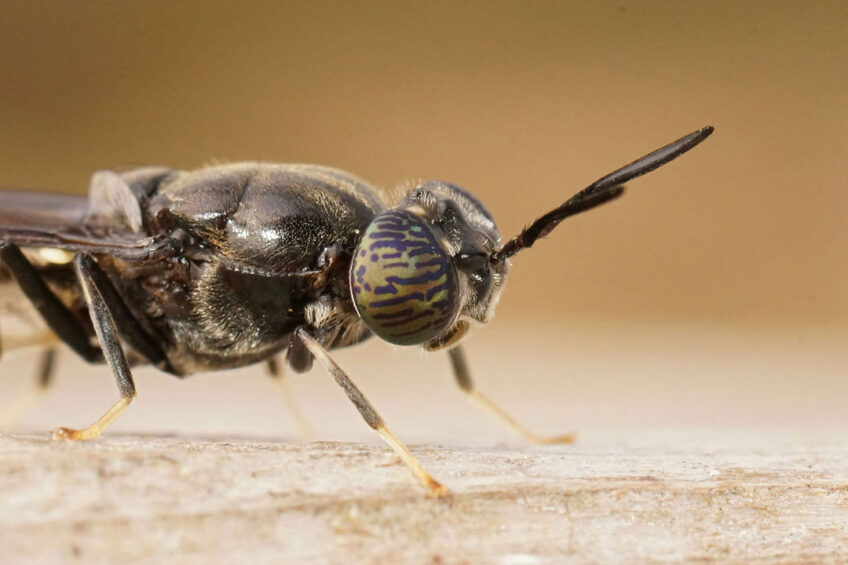Investors show financial support for insect farming for poultry

Investors have poured in over £1.7 million to scale up production, sales and supply of Black Soldier Fly (BSF) eggs and larvae produced by Scottish insect genetics business Beta Bugs Ltd.
The funding round for the upscaling of resources to the insect farming sectors, as a sustainable alternative to current sources of protein for animal feed, was led by the Tricapital Syndicate LLP, with support from SIS Ventures, Scottish Enterprise, Beeches Group, Climate. Vc, and existing shareholders and Innovate UK.
A sustainable alternative protein
Based in Edinburgh, Beta Bugs has developed the UK’s first selective breeding programme and egg production site for the BSF, as an alternative protein source for use in poultry, pig and aquaculture feed, and can be reared on various waste streams, including agricultural and food waste.
Moray Martin, managing partner of the Tricapital Syndicate, said insect farming was increasingly seen as a sustainable alternative protein source that could help mitigate the predicted increase in protein demand over the coming decades. He said: “The significantly lower environmental impact of insect farming places the sector at the forefront of sustainable food source development.”
Arran Dewar, SIS Ventures executive director, said that as the UK’s only insect genetics company, Beta Bugs was laying the foundation for a more sustainable global feed system: “By creating and diverting waste for its ground-breaking breeding programme, the business will deliver significant impact in Scotland with the potential to deliver even greater impact globally as the business grows and scales.”
A circular waste feeding scheme
Thomas Farrugia, CEO and founder of Beta Bugs, said the company was continuing to develop its breeding programme which had demonstrated consistent increases in BSF genetic performance across multiple, economically viable production traits.
“Completing this investment will allow us to expand production capacity, drive to profitability over the coming 18-24 months, and further strengthen our market leadership position in the strategically important insect farming industry,” Farrugia said.
Supermarkets are turning increasingly to insect diets. Earlier this summer, Morrisons launched its first “planet friendly” eggs where the hens have been fed a soya-free diet of insects. The insects in turn are fed on food waste from the Morrisons bakery, fruit and vegetables sites – a groundbreaking circular waste feeding scheme which reduces deforestation caused by soya production and eliminates carbon emissions created through soya transportation. The hen’s diet is also supplemented with locally grown grains to reduce food miles.
 Beheer
Beheer











 WP Admin
WP Admin  Bewerk bericht
Bewerk bericht